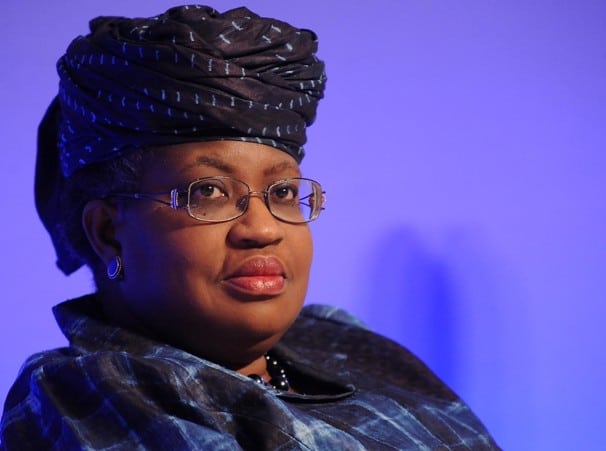- Okonjo-Iweala to Earn £130,000 Annually in New Standard Chartered Appointment
The Board of Directors of Standard Chartered Plc yesterday announced the appointment of Nigeria’s former Minister of Finance, Dr. Ngozi Okonjo-Iweala, as an independent Non-Executive Director with effect from November 1, 2017.
A statement from the bank said Okonjo-Iweala would also join the Board’s Brand, Values and Conduct Committee of the bank.
With the appointment, Okonjo-Iweala will receive a fee of GBP100,000 per annum for her services as an independent Non-Executive Director, with an additional fee of GBP30,000 per annum as a member of the brand, values and conduct committee of the international bank, in accordance with the Rules Governing the Listing of Securities on the Stock Exchange of Hong Kong Limited.
The independent non-executive Directors do not participate in any of the Group’s incentive arrangements.
Aged 63, Okonjo-Iweala has 30 years of economic development and financial expertise. She is an internationally renowned economist and a prominent African leader, who twice served as Finance Minister in Nigeria, Africa’s largest economy and one of our largest African markets. She has played an important role in public finance transparency and has in-depth knowledge of Africa and international affairs.
Ngozi spent 25 years working at the World Bank in various positions. After leaving in 2003, she served as the Finance Minister of Nigeria from 2003 to 2006. She returned to the World Bank in 2007, serving as a Managing Director until 2011, when she was appointed to the role of Minister of Finance and Coordinating Minister for the Economy in the Nigerian government, a position she held until 2015.
“During her time in government, she spearheaded Nigeria’s successful program to obtain debt relief and is credited with developing reforms that helped improve governmental transparency to stabilise and grow the Nigerian economy,” it added.
Okonjo-Iweala sits on a number of prestigious international advisory boards including the Asian Infrastructure Investment Bank and as Chair of the Global Alliance for Vaccines and Immunisations (GAVI). She has a Bachelor’s degree from Harvard University and a Masters and PhD from Massachusetts Institute of Technology.
Commenting on the appointment, the Group Chairman of the bank, José Viñals said: “Ngozi is a globally recognised African and international figure. She has significant geopolitical, economic, risk and development experience and expertise at a national governmental level and in international organisations, which will provide significant insight and value to the Board. She also has deep knowledge of Africa as well as emerging and developing markets. I am delighted to welcome her to Standard Chartered.”
The statement stressed that Okonjo-Iweala has no relationship with any other director, member of senior management or substantial or controlling shareholder of Standard Chartered.
“Okonjo-Iweala does not have any interests in shares of the Company.”

 News3 weeks ago
News3 weeks ago
 Business3 weeks ago
Business3 weeks ago
 Technology3 weeks ago
Technology3 weeks ago
 Investment3 weeks ago
Investment3 weeks ago
 Banking Sector3 weeks ago
Banking Sector3 weeks ago
 Banking Sector3 weeks ago
Banking Sector3 weeks ago
 Appointments3 weeks ago
Appointments3 weeks ago
 Investment3 weeks ago
Investment3 weeks ago





























